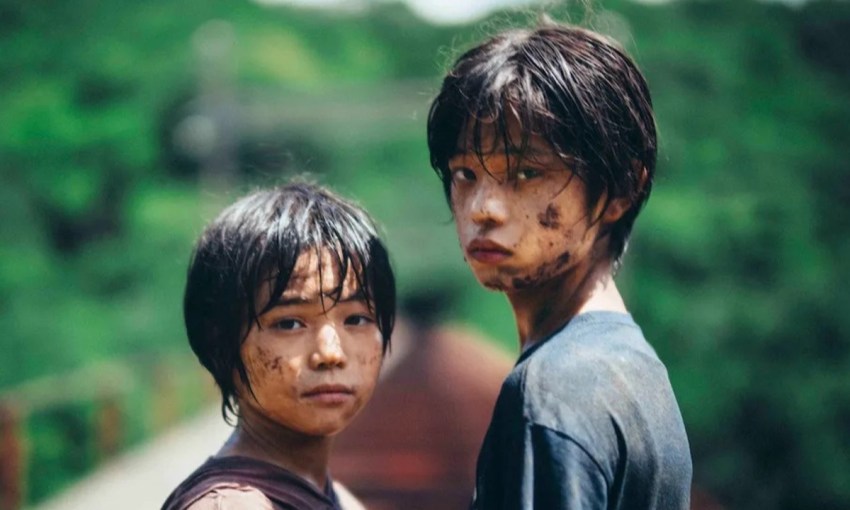The dangers of skewed perceptions and the hardships of navigating boyhood drive Hirokazu Kore-eda’s latest benign thriller.
AFF review: Monster
Elements of unnerving mystery and coming-of-age are wonderfully synchronised in Japanese filmmaker Hirokazu Kore-eda’s latest thriller, Monster.
The film explores the troublesome relationship between a single mother, a school teacher and two children as they engage in a psychological battle to uncover the truth about one another.
The next screening for ‘Monster’ at the Adelaide Film Festival is on Thursday 26th of October at 8:15pm.
See the full program here.
Kore-eda is no stranger to blending suspense and light-hearted narratives, with both Shoplifters (2018) and Broker (2022) being contenders at the Cannes Film Festival.
They expertly maintain a gentle atmosphere with a subtle, dreadful undertone, a signature style informed by Kore-eda’s desire to incorporate shomin-geki (a way of filming that focuses on small but meaningful moments rather than dramatic tension).
Each of the three separate segments in Monster retell events from the perspective of a different character.
The film begins with mother Saori (Sakura Ando) trying to unravel the meaning behind her son’s (Soya Kurokawa) strange behaviour and his relationship with his teacher, Mr. Hori (Eita Nagayama).
This review was provided by the “2023 Emerging Screen Critics Program” – a Screen Studies collaboration between the Adelaide Film Festival and UniSA Creative, with the participation of students and mentors from the University of South Australia, the University of Adelaide and Flinders University. Supported by CityMag.
The second section follows Hori’s point of view, showcasing how his minor actions have significant negative repercussions for his career and personal life.
Finally, the longest and most compelling segment of the film illustrates the heart-warming friendship between Saori’s son, Minato, and his friend, Hoshikawa (Hiragi Hinata), and how their secretive nature shapes their thinking and impacts the lives of those around them.
The narrative structure might catch viewers off guard but it is well executed and allows the film to escalate tension and subvert expectations in a delightful manner.
Across the course of the film, the four central characters encounter difficulties that test their ability to be honest in their own ambitions, with pressure from their families, colleagues and school bullies influencing their decisions.
Relatable scenes like Minato’s revelation “happiness is something anyone can have” are particularly powerful.
Kore-eda’s tender approach to adolescence and queer representation is striking, as the childrens’ scenes are delicately executed with a blend of serious and comedic story beats.
The nuanced performances of the child actors are also noteworthy, as the film relies on their exceptional ability to convey complex emotions and portray a convincing relationship.
This not only contributes to a compelling coming-of-age story but also serves as an inspiration for those dealing with similar dilemmas.
A major takeaway from the film is its cautionary message as to the unforeseen ‘monster’ that lies within us all. The film demonstrates that a lack of communication, combined with a limited understanding of events and other people’s lives, has the potential to rupture families and destroy reputations.
Ultimately, Kore-eda punishes those who jump to dramatic conclusions, including the viewers themselves.




